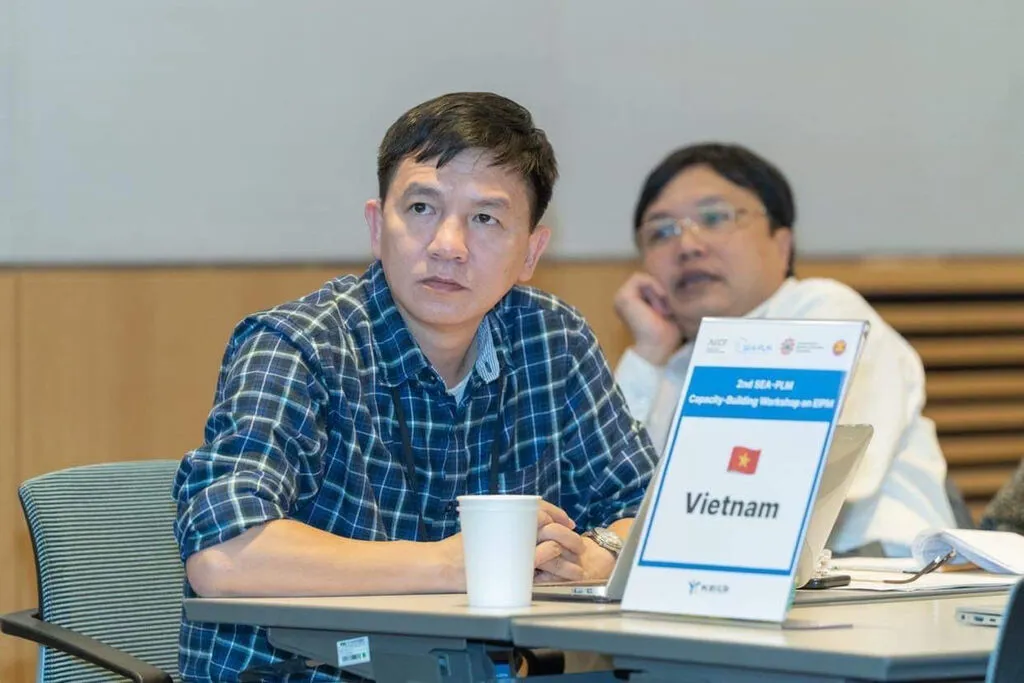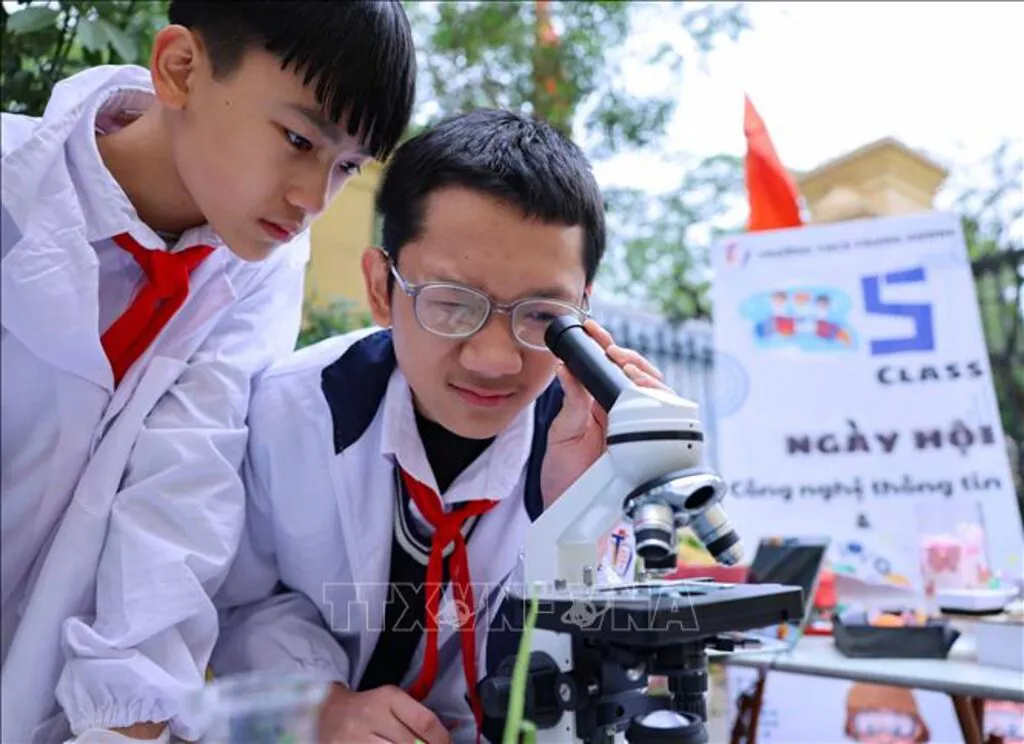Vietnamese students' skills recognized in PISA survey
The Program for International Student Assessment (PISA) 2022 results show that Vietnam consistently ranks among the top performers in the ASEAN region, as well as high in the group of middle-income countries and territories.
The PISA, conducted by the Organization for Economic Cooperation and Development (OECD), shows Vietnamese students scored close to the OECD average in mathematics, reading and science.
PISA is an international student assessment program that measures the skills of 15-year-old students in these three areas every three years.
Dr. Pham Quoc Khanh, Deputy Director of the Quality Control Department under the Ministry of Education and Training, spoke to the Vietnam News Agency (VNA) about the PISA survey and how it assesses Vietnamese students' abilities.
Dr. Pham Quoc Khanh, Deputy Director of the Quality Management Department under the Ministry of Education and Training. Photo: VNA |
How have Vietnam's PISA results evolved over the 10 years it has participated in the survey?
Vietnam joined the assessment in 2012. By 2022, 81 countries and territories, including 36 OECD countries, have been members of the program.
The survey results showed Vietnamese students performed close to the OECD average in mathematics, reading, and science, ranking 34th out of 81 countries and territories.
Overall, Vietnam ranks second in the ASEAN region after Singapore, while in mathematics, according to the PISA index of socio-economic conditions, Vietnamese students scored the highest in Asia, behind only Hong Kong, Taiwan (China), and South Korea. These results are consistent with the information analyzed by the OECD on the factors affecting results in the published reports.
The PISA 2022 results show that Vietnam consistently ranks among the top performers in the ASEAN region, as well as high in the group of middle-income countries and territories.
Do you have any comments on the gap between students with the best learning conditions and those with the most difficulties? Is it true that Vietnam is still trying to reduce this gap?
Students with favorable socio-economic conditions indeed outperform students from disadvantaged backgrounds in mathematics. The average difference between the two groups is 78 points, compared to 93 points in OECD countries. This is the case not only in Vietnam but also in many other countries and territories. However, around 13% of Vietnamese students from disadvantaged backgrounds scored in the top 25% (the average for OECD countries is 10%).
In addition to socio-economic conditions, other factors influence learning outcomes. Therefore, the Ministry of Education and Training (MOET) has adopted synchronized and systematic solutions adapted to each region to achieve equality of access to education.
An experiment by Hanoi students at the Information Technology Festival. Photo: VNA |
What does participating in PISA mean for Vietnam's educational innovation? How have we applied the OECD assessment model to evaluate our students?
PISA 2022 included 81 countries and territories with at least 81 different middle school programs. Students studied different books and materials but took the same 120-minute and 35-minute competency assessment tests. The survey provided important input data for policy development and implementation.
The Education and Training Sector is implementing a project to develop a national assessment system to meet the requirements for improving the quality and international integration of general education in the period 2022-2030, in accordance with the decision of the Minister of Education and Training of February 13, 2023 (Project 468). The project aims to provide regular, objective, and reliable information on the quality of general education, as a basis for proposing policies and solutions to innovate teaching and learning activities to meet the requirements of the implementation of the General Education Program 2018.
In recent years, we have used the OECD assessment model to benchmark Vietnamese students. The Quality Management Department is still training in the use of the PISA assessment to improve the capacity of managers and teachers.
The training sessions have helped managers and teachers to apply PISA assessment methods at the local level and to innovate test questions in the direction of developing students' capacities. The PISA assessment techniques and methods have many outstanding advantages, which are in line with the trend of assessing learners' abilities towards the development of qualities and capacities of the General Education Program 2018, contributing to the improvement of the quality of general education and international integration.
Thank you for your time!












